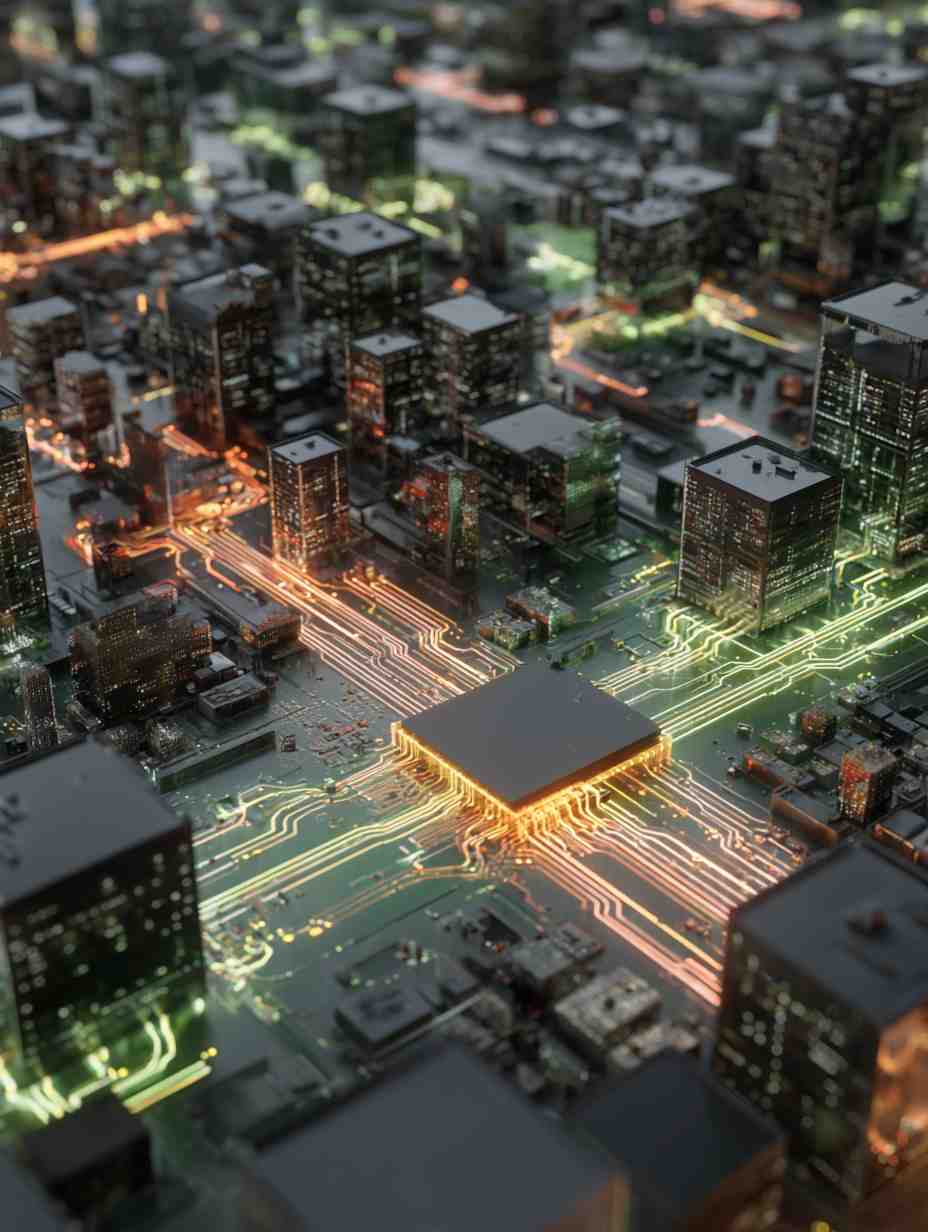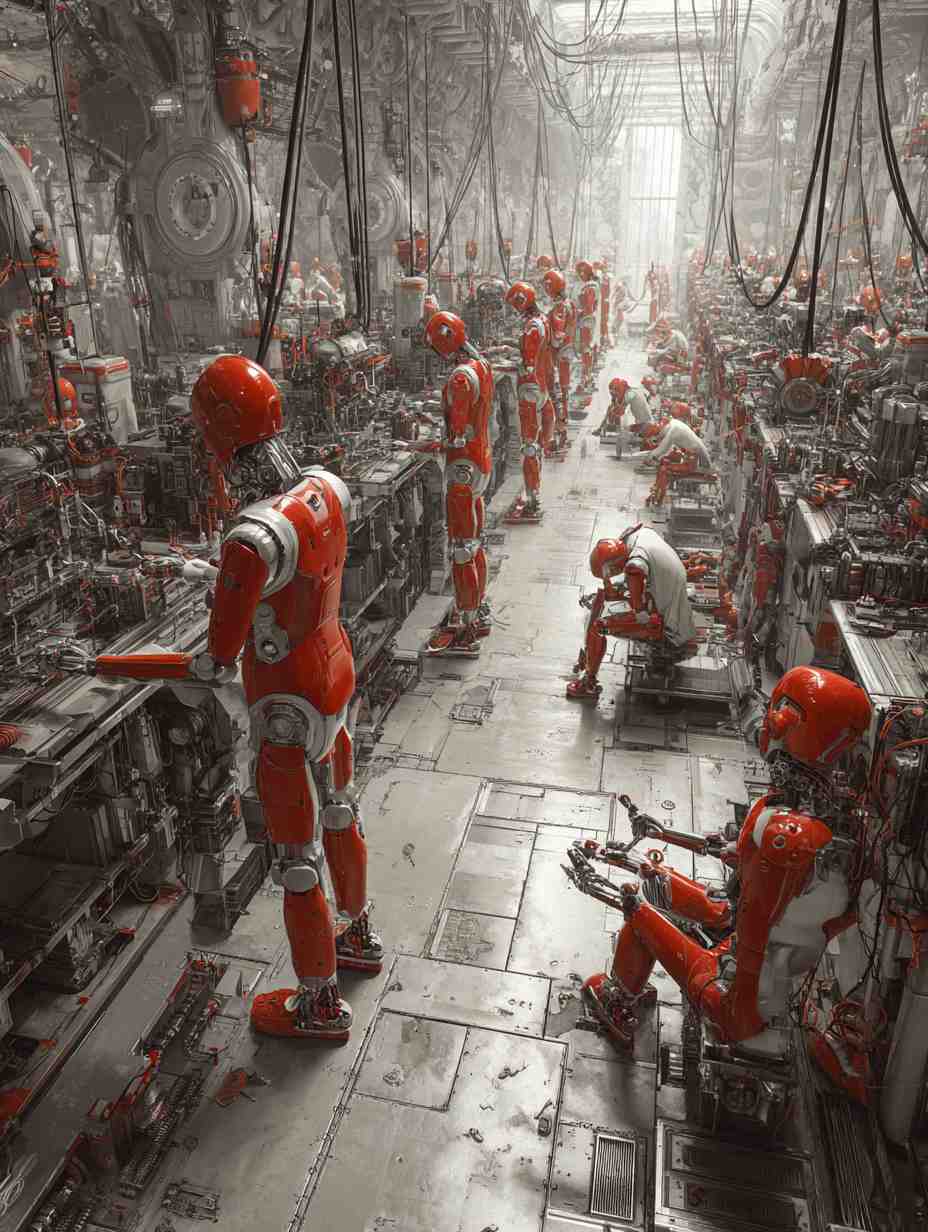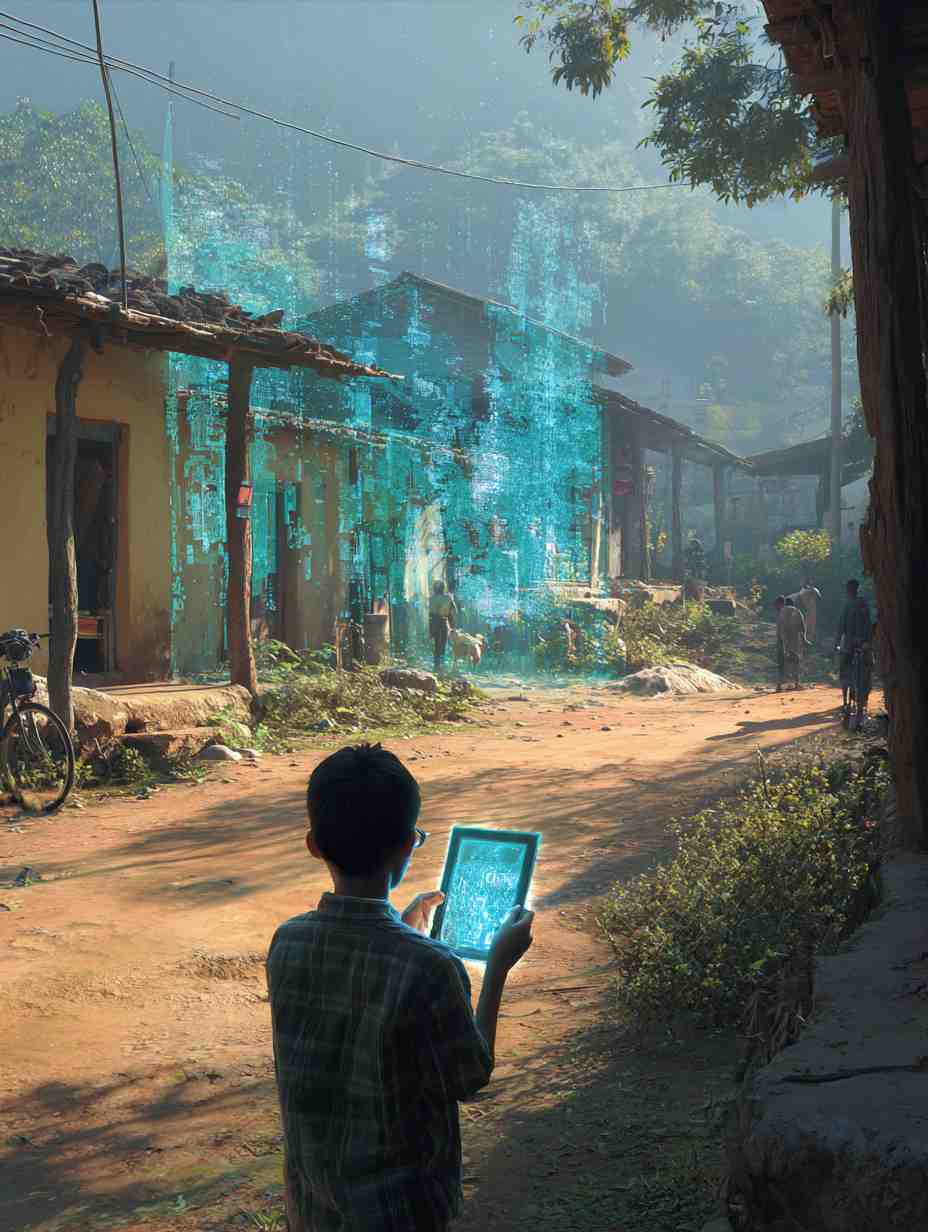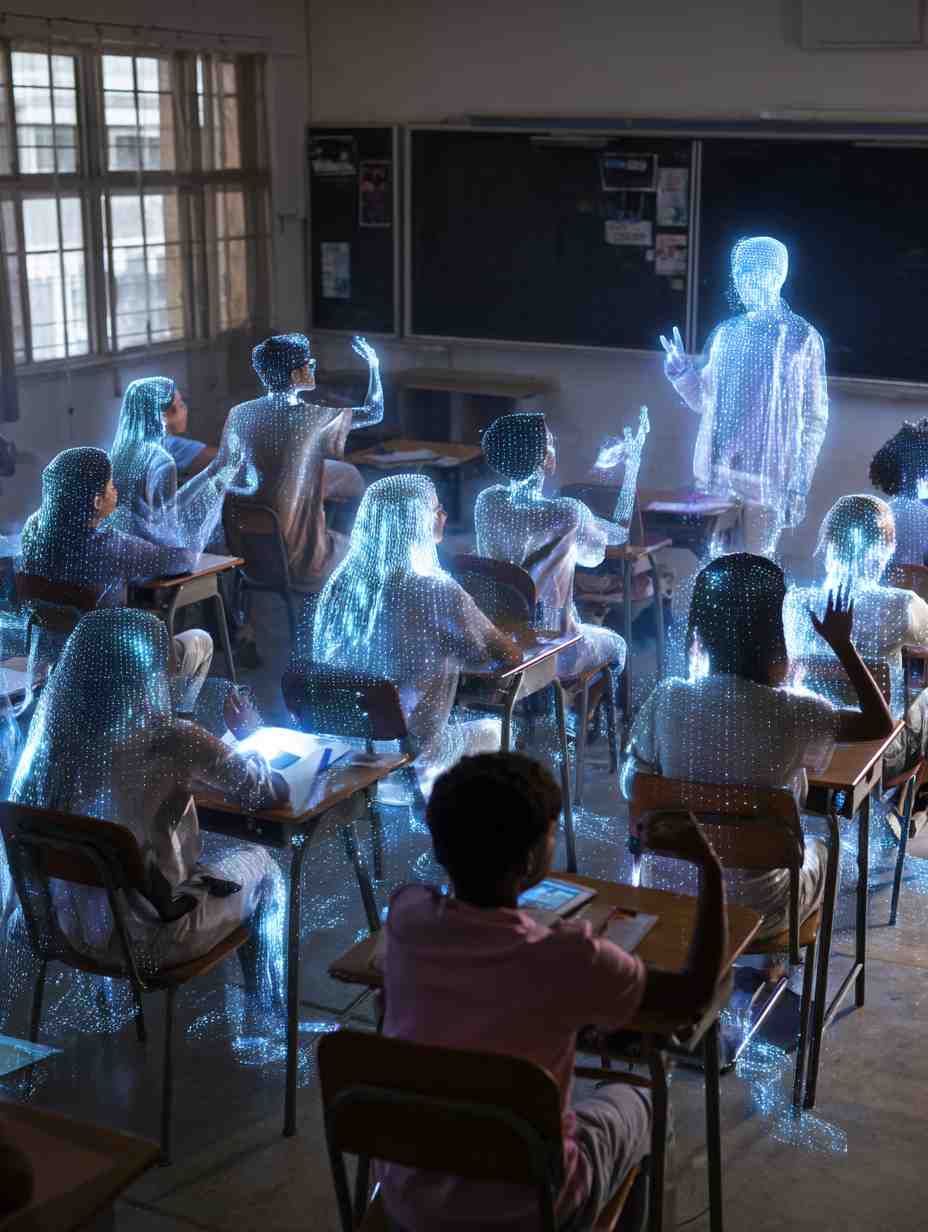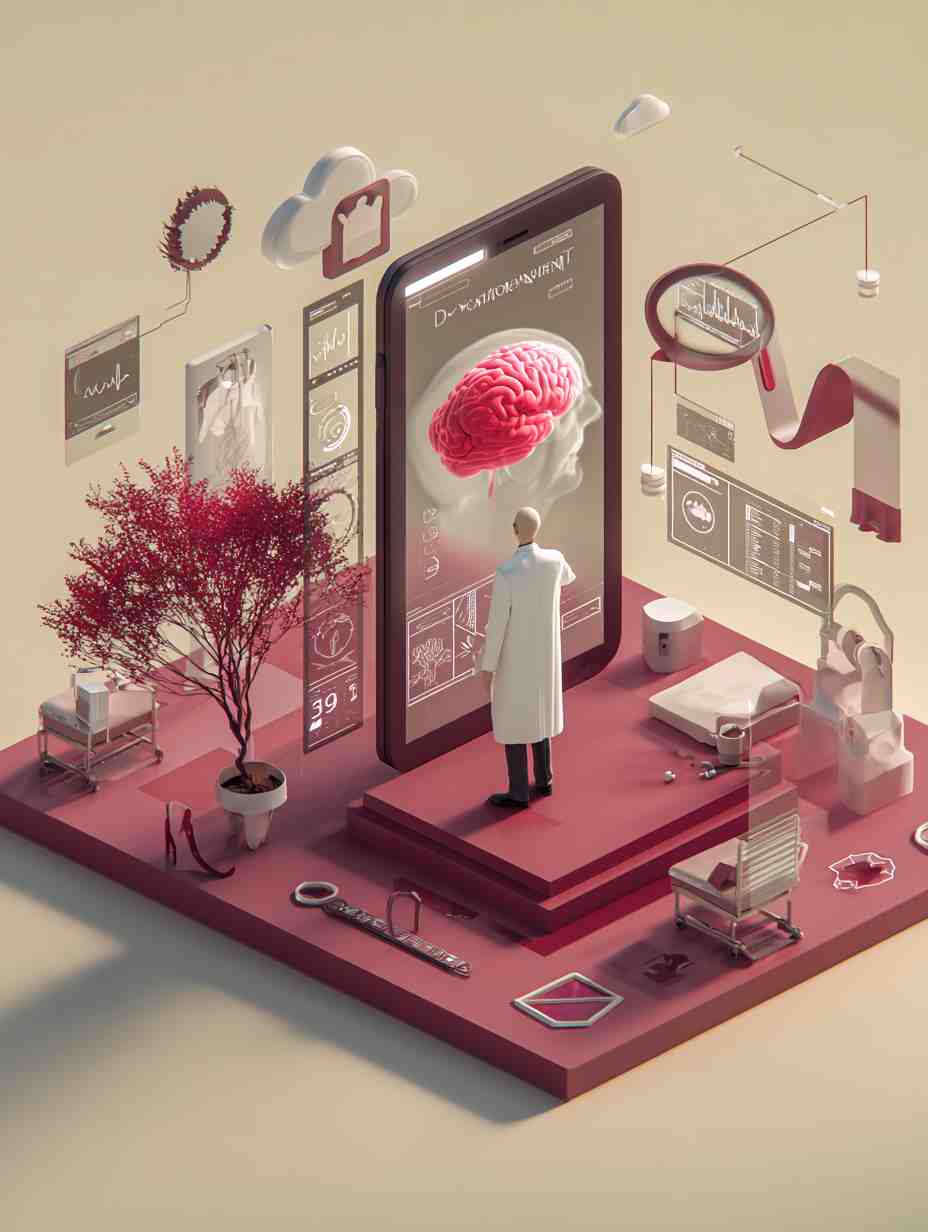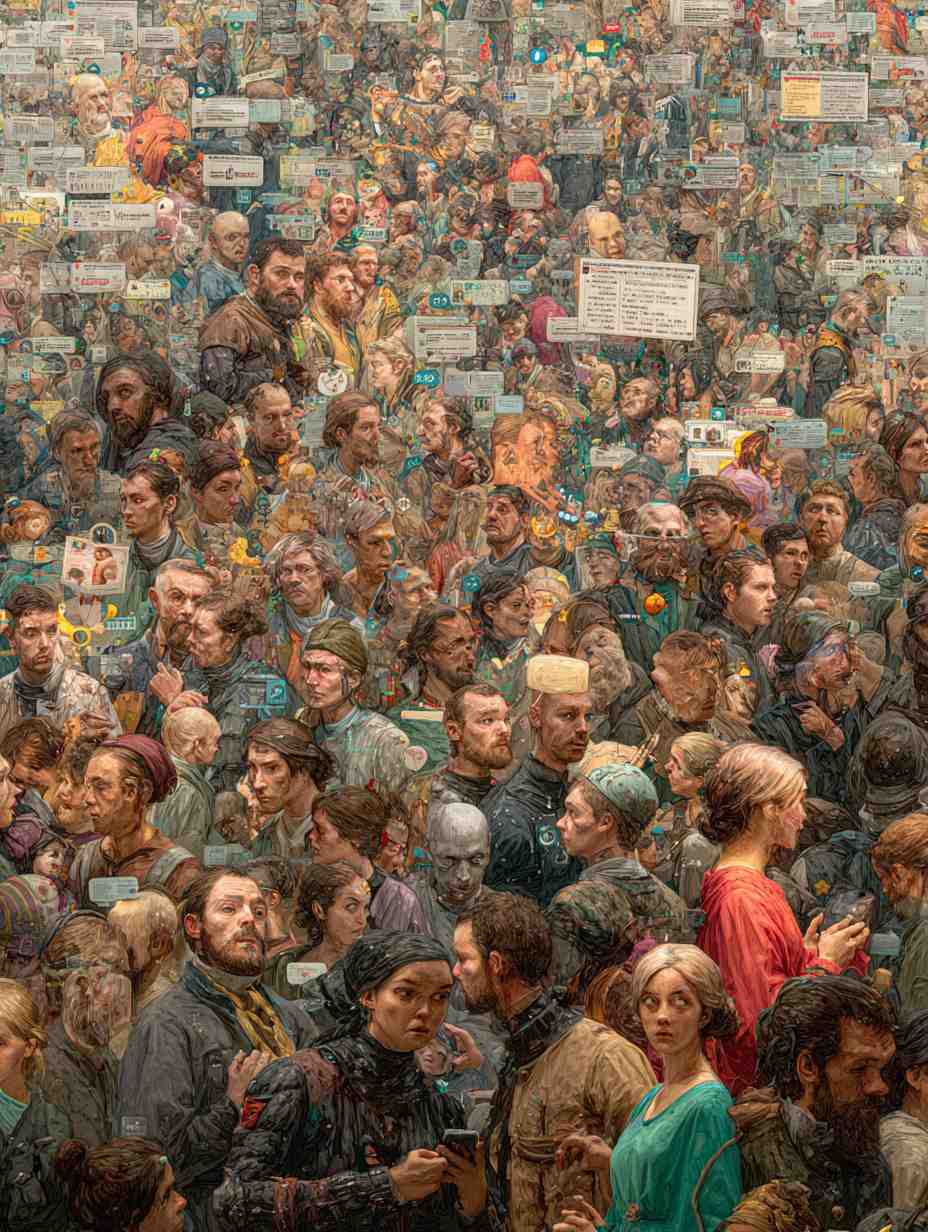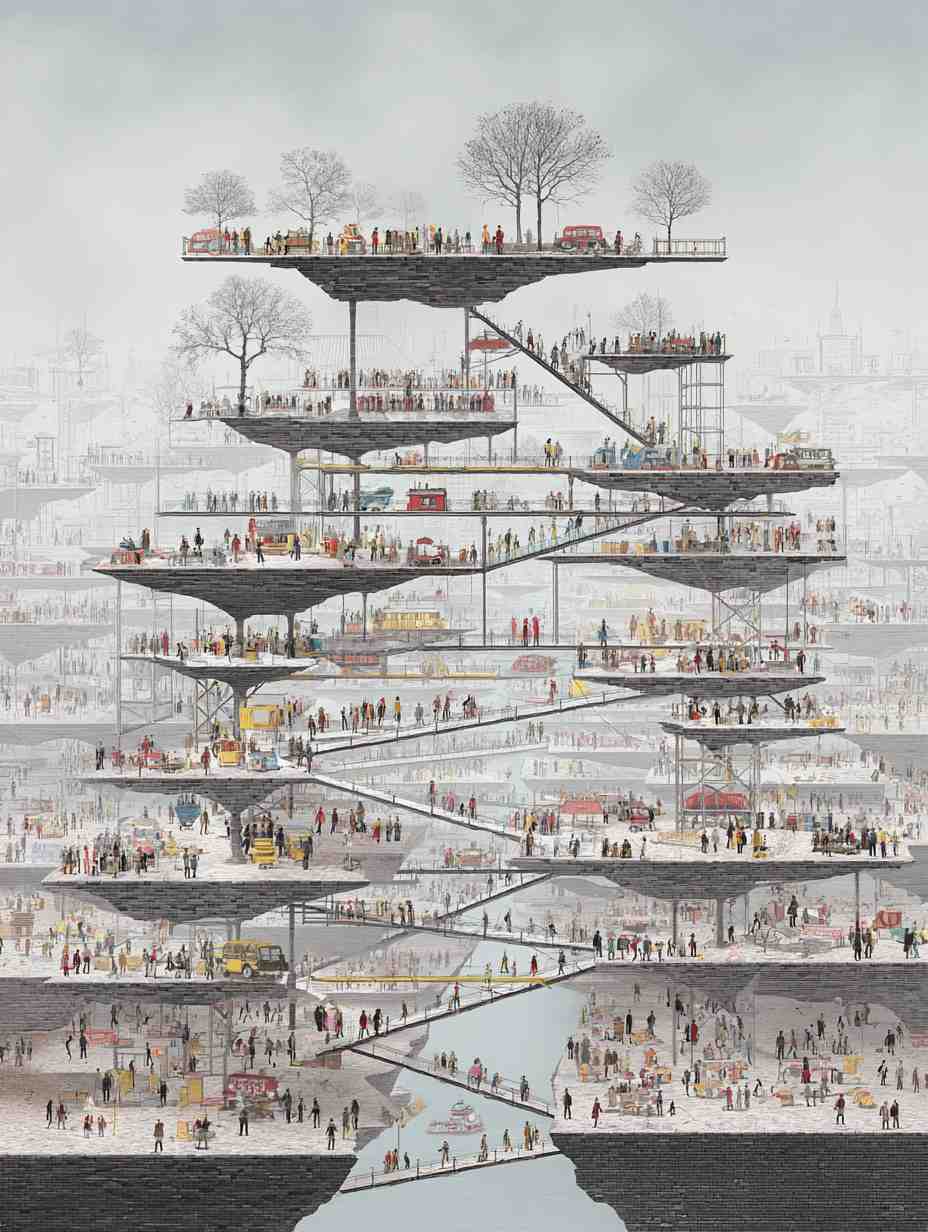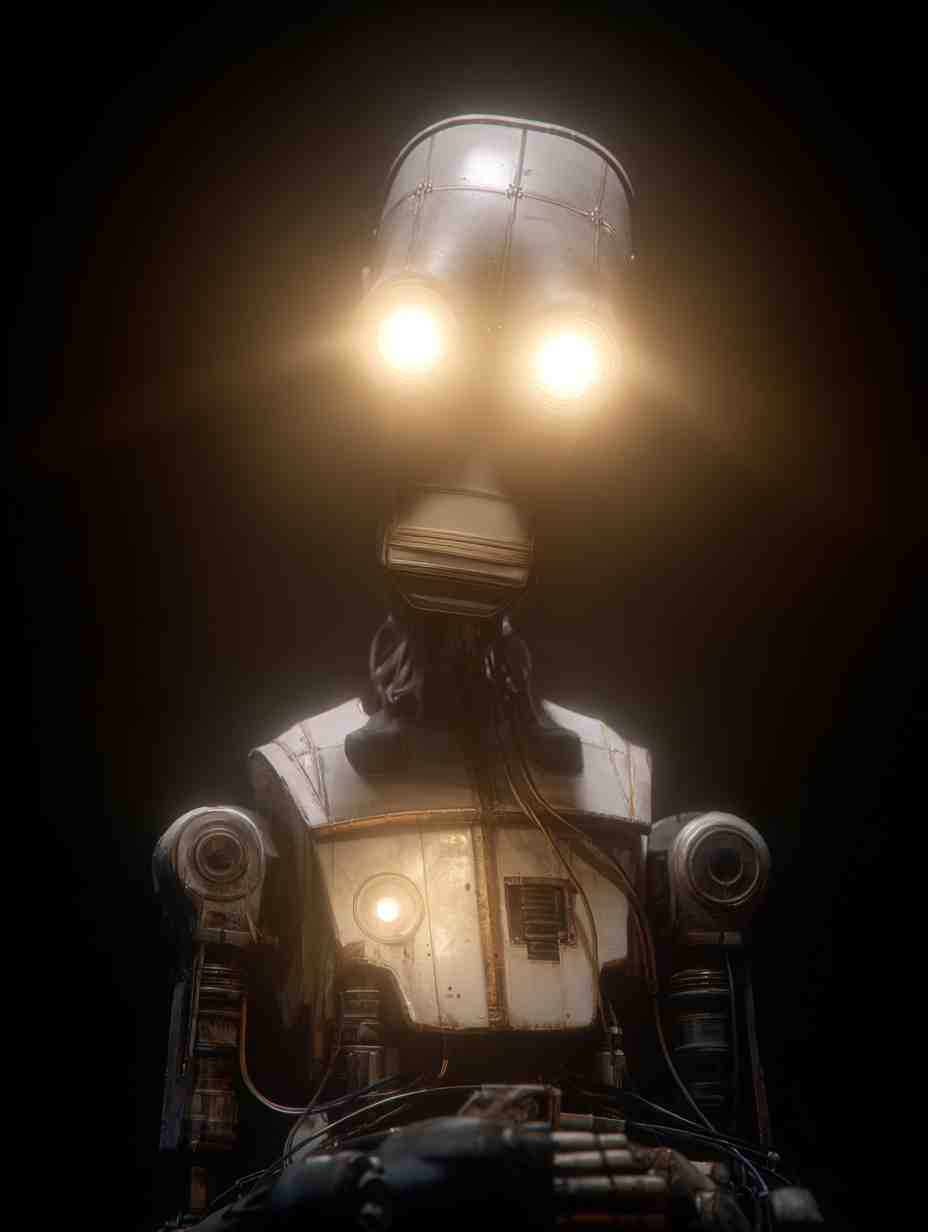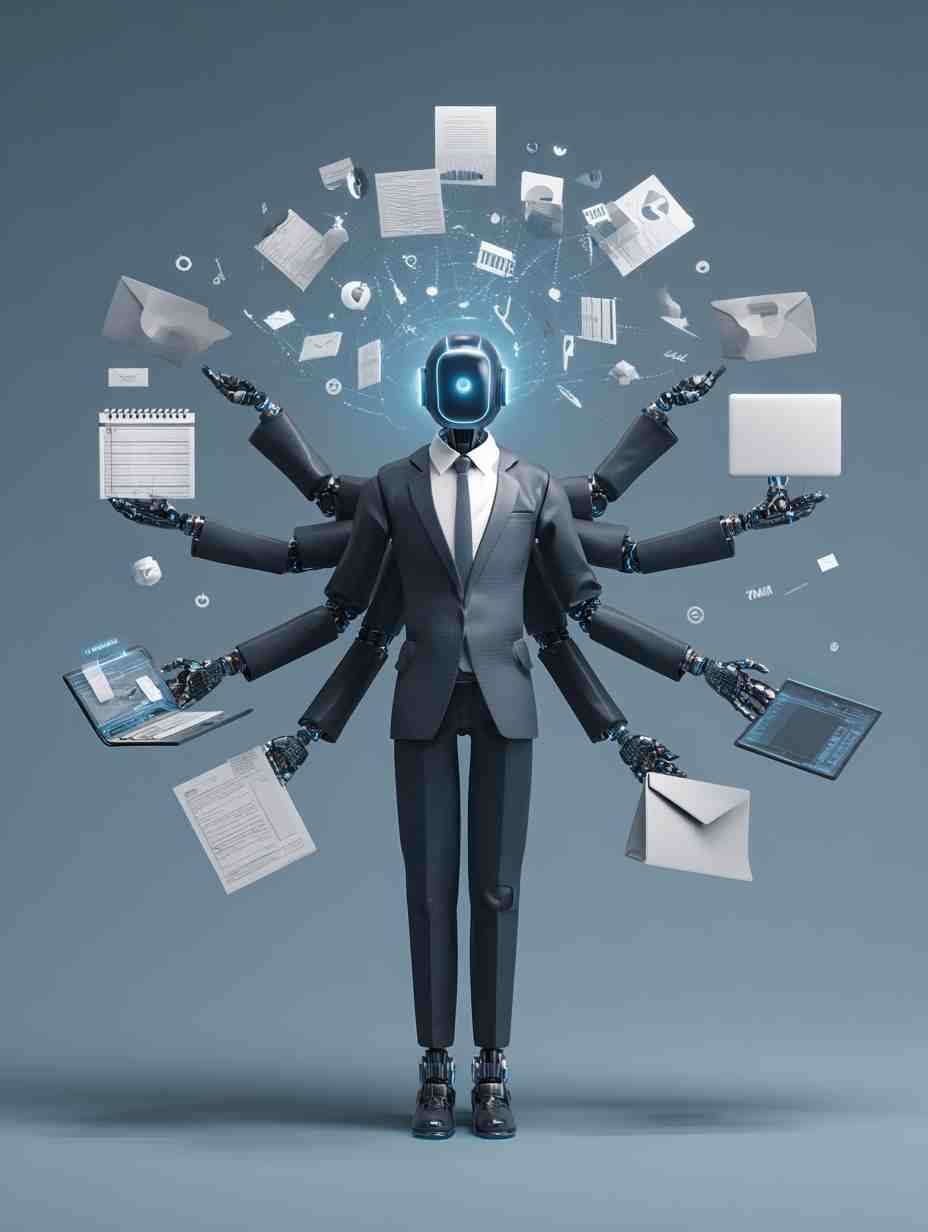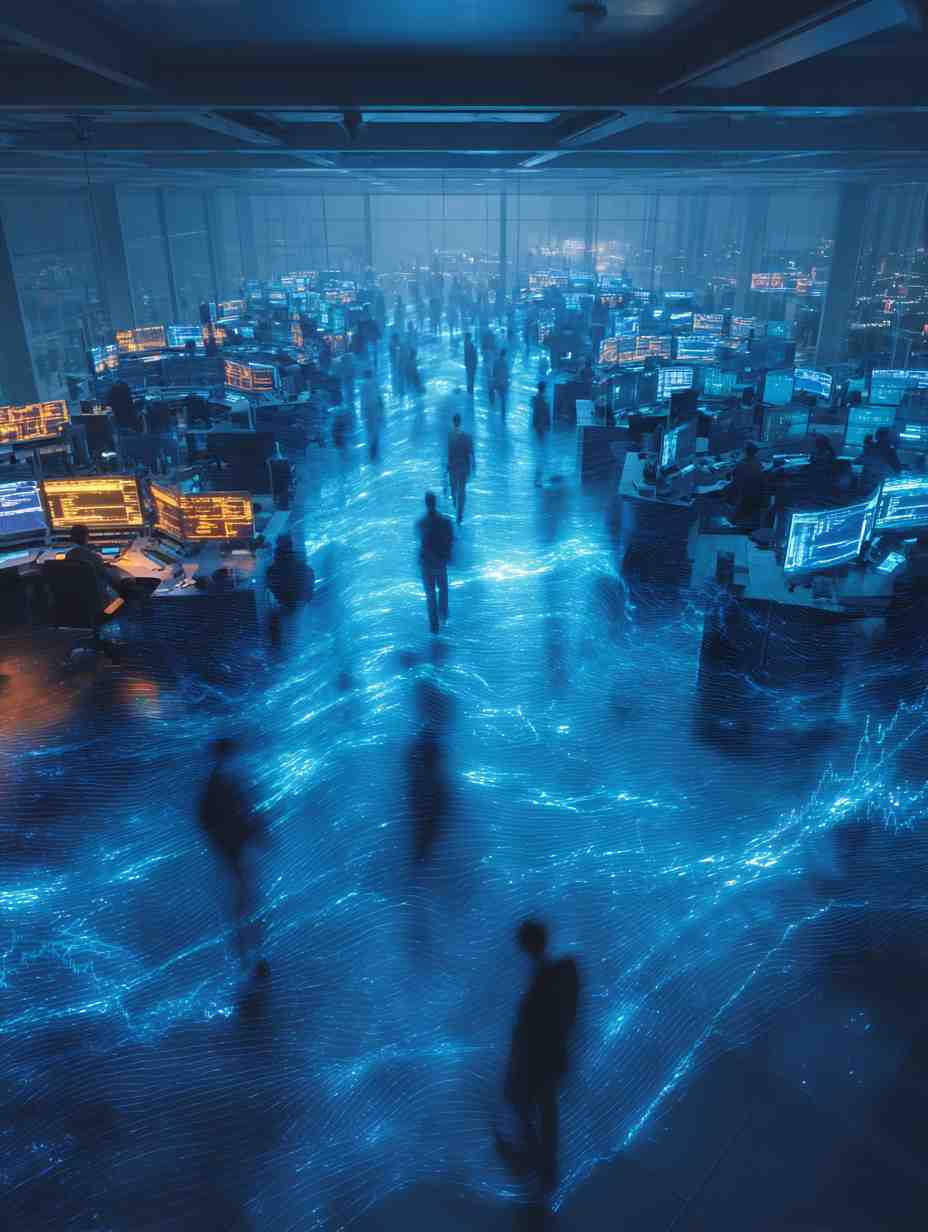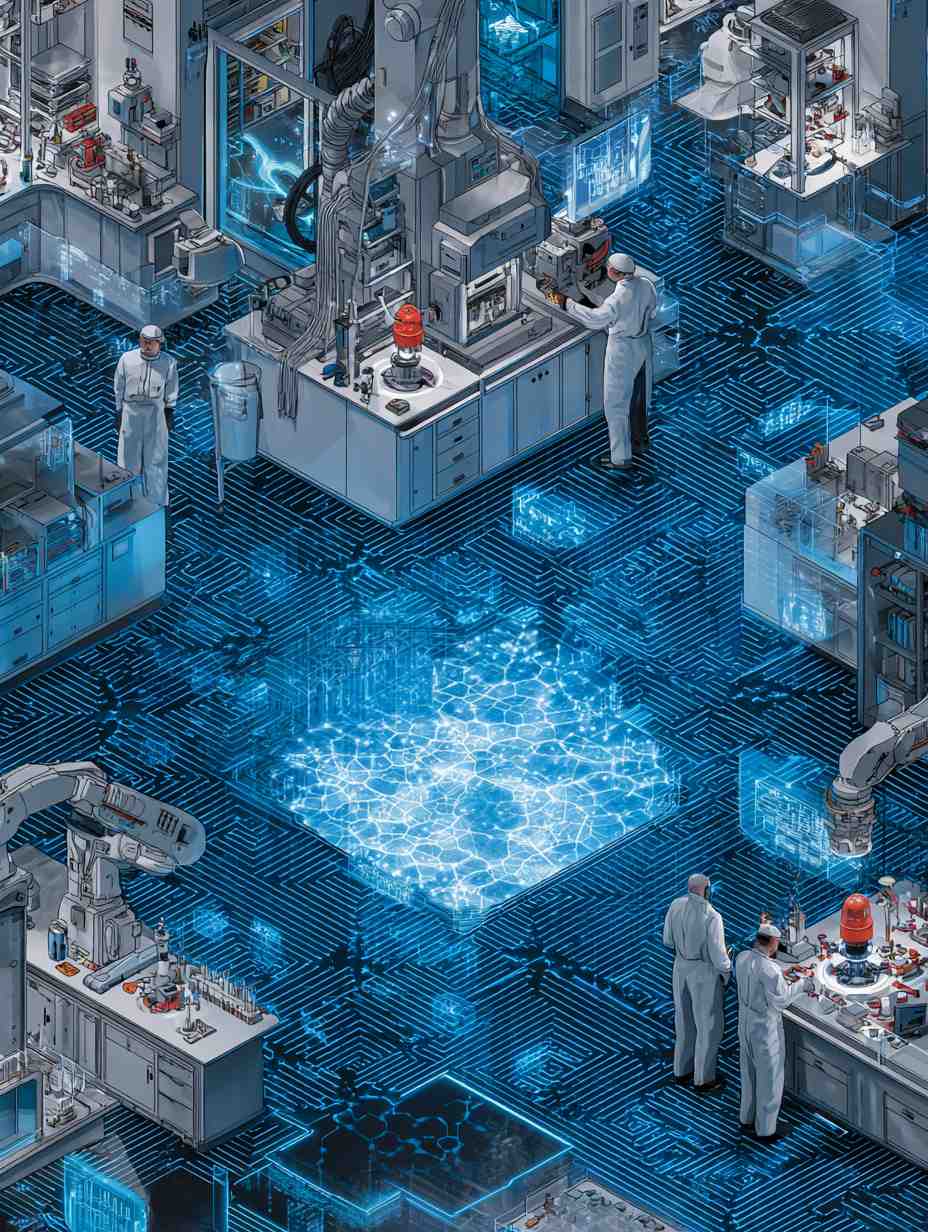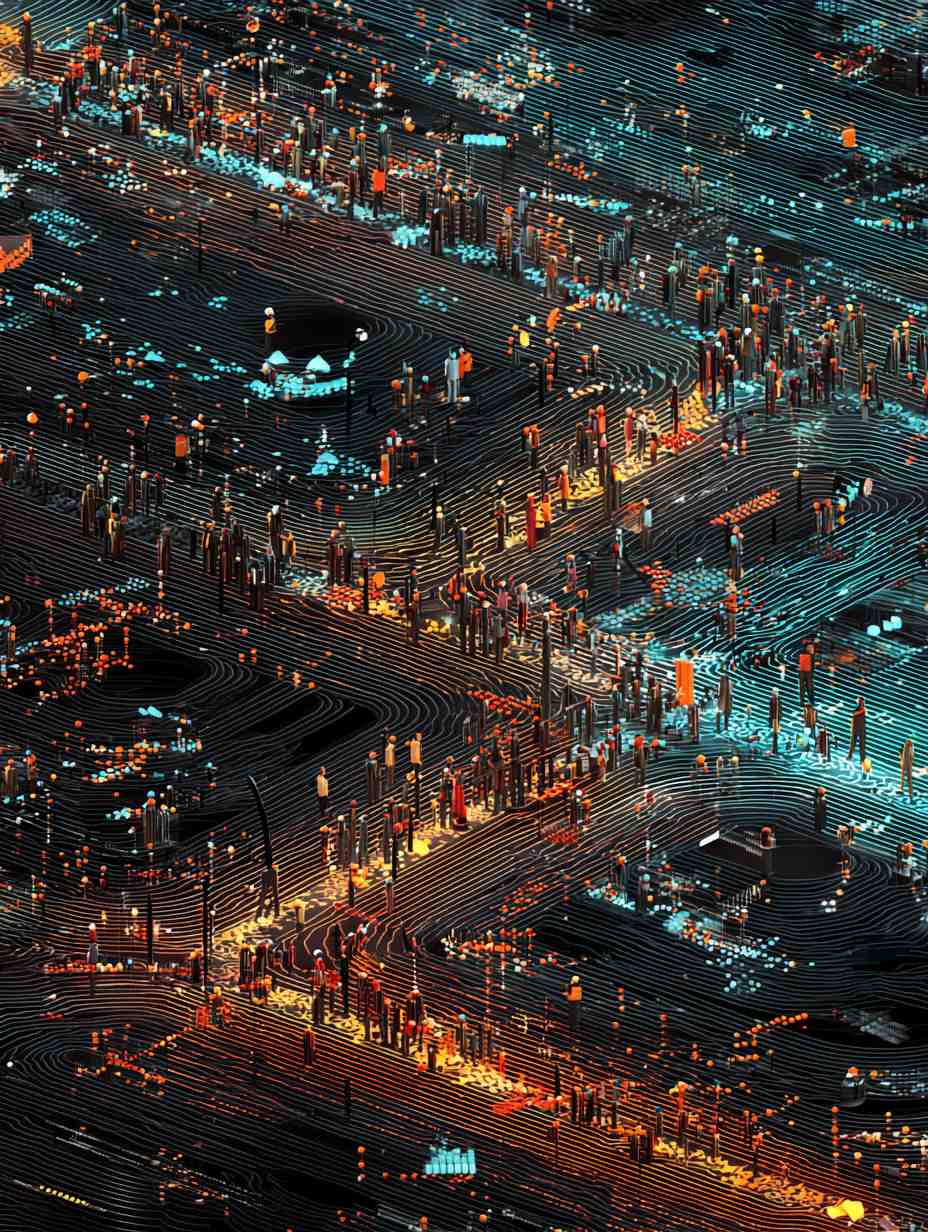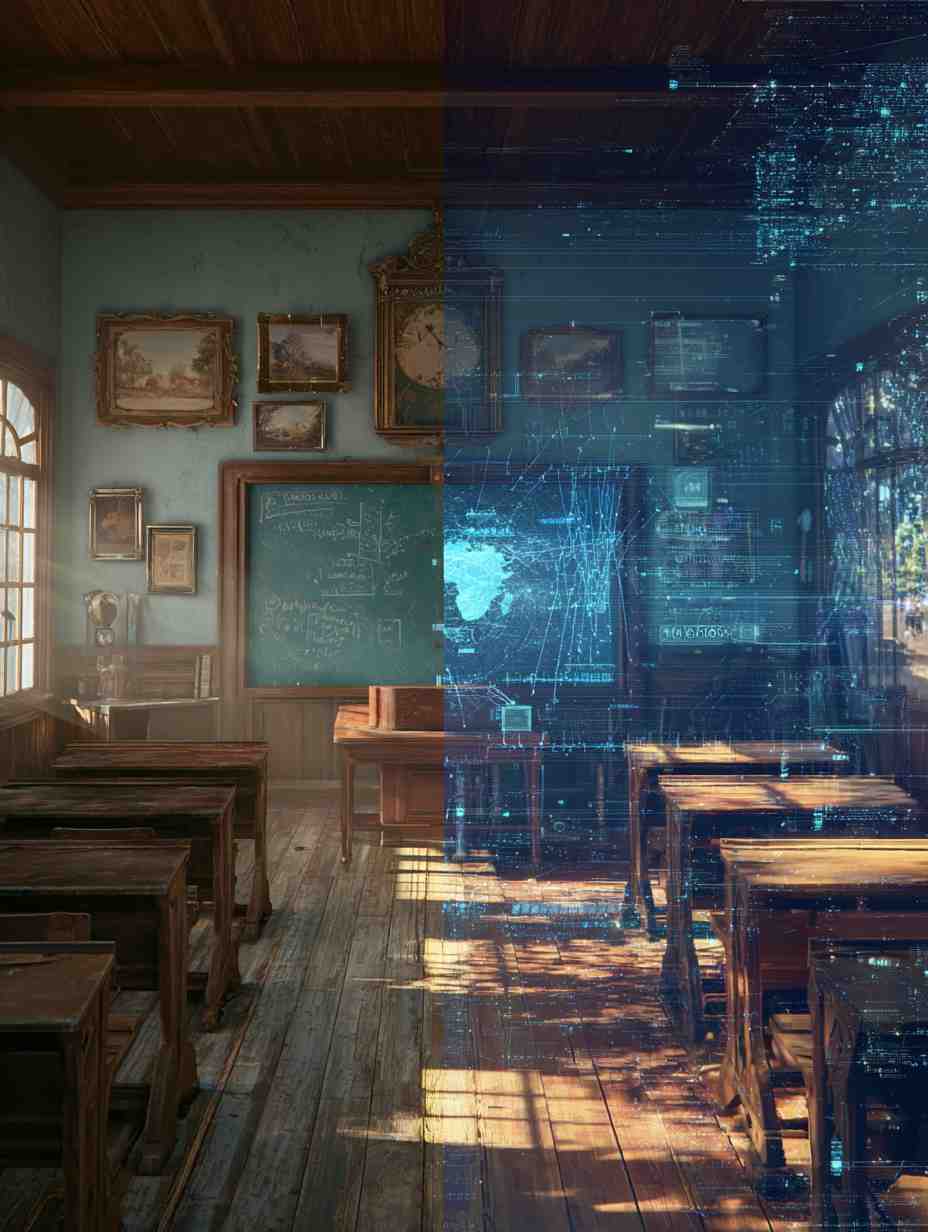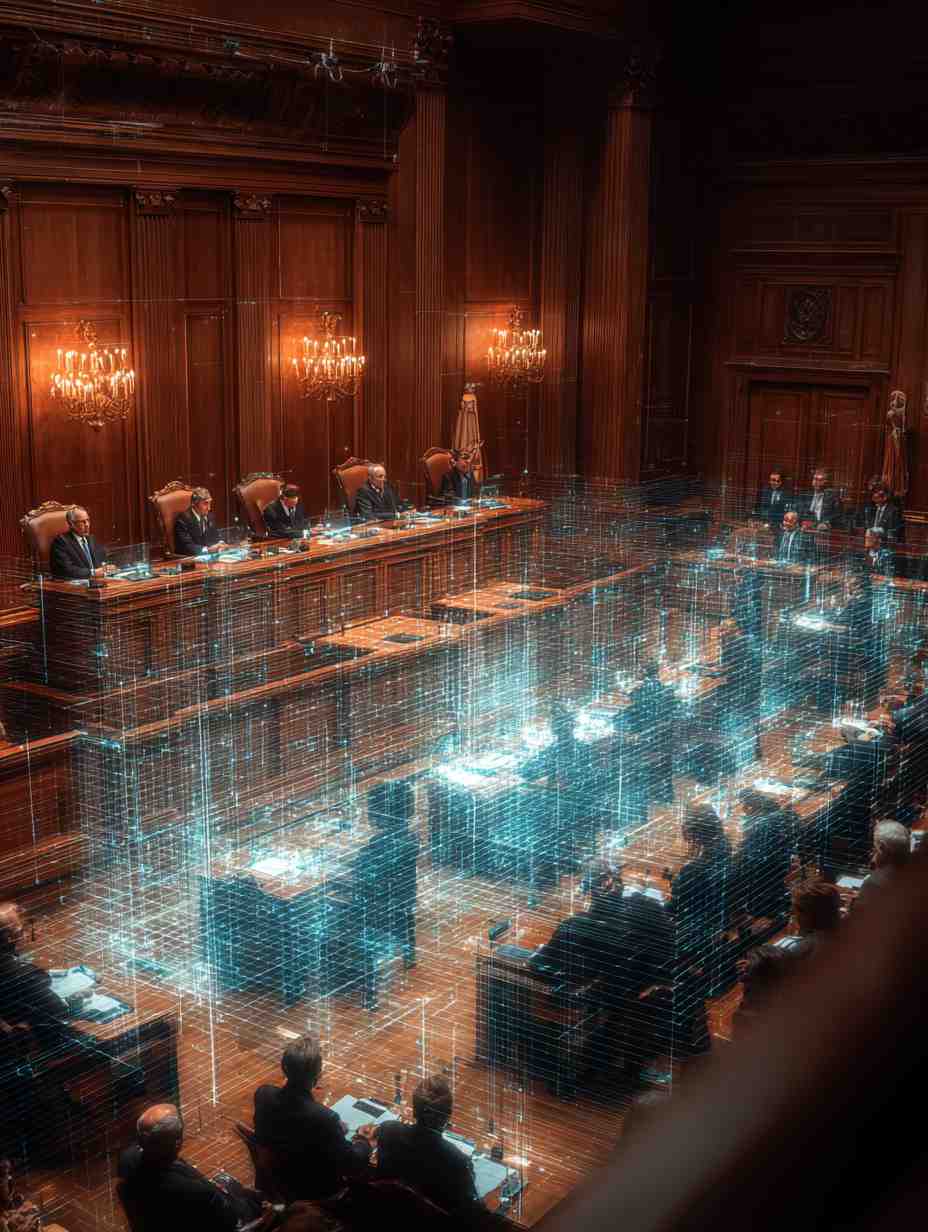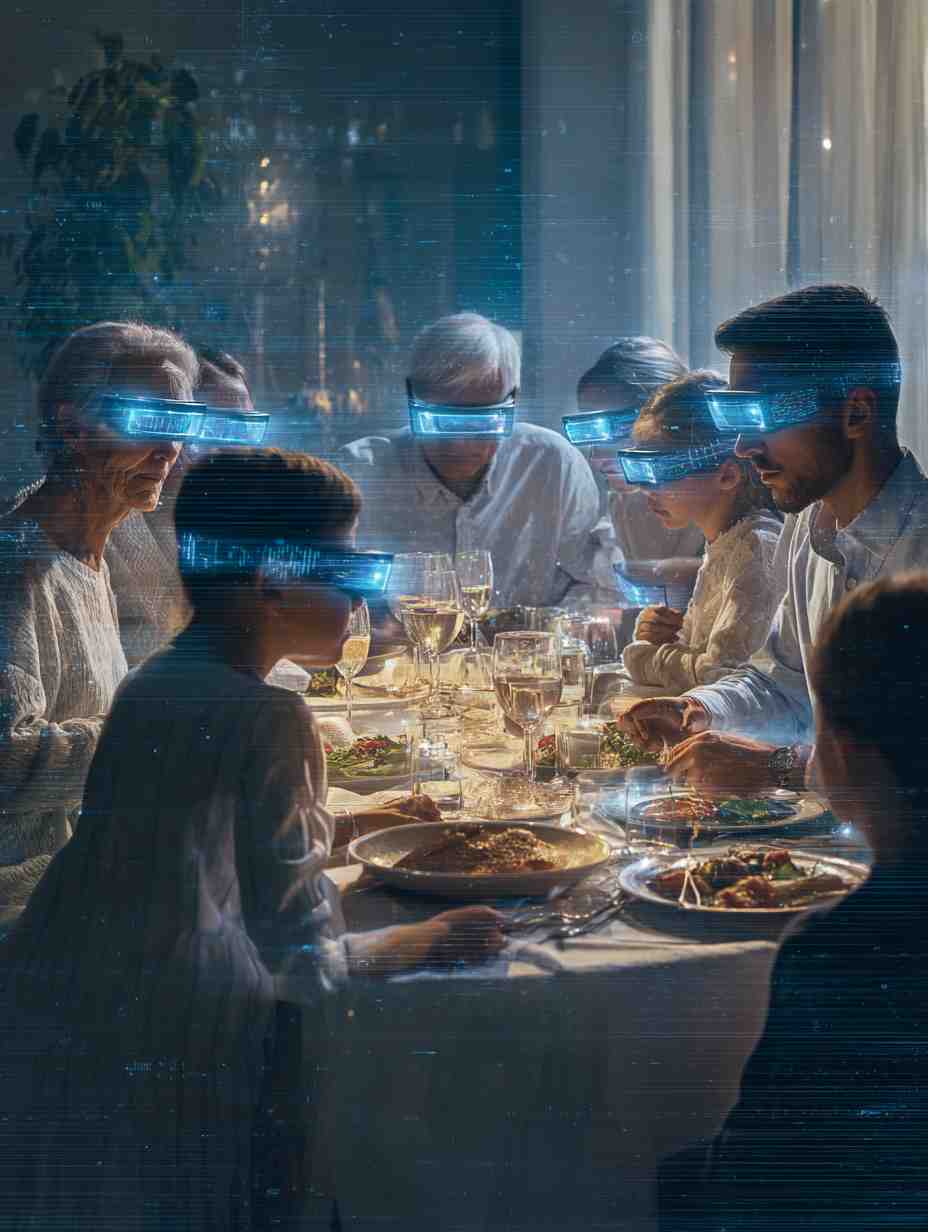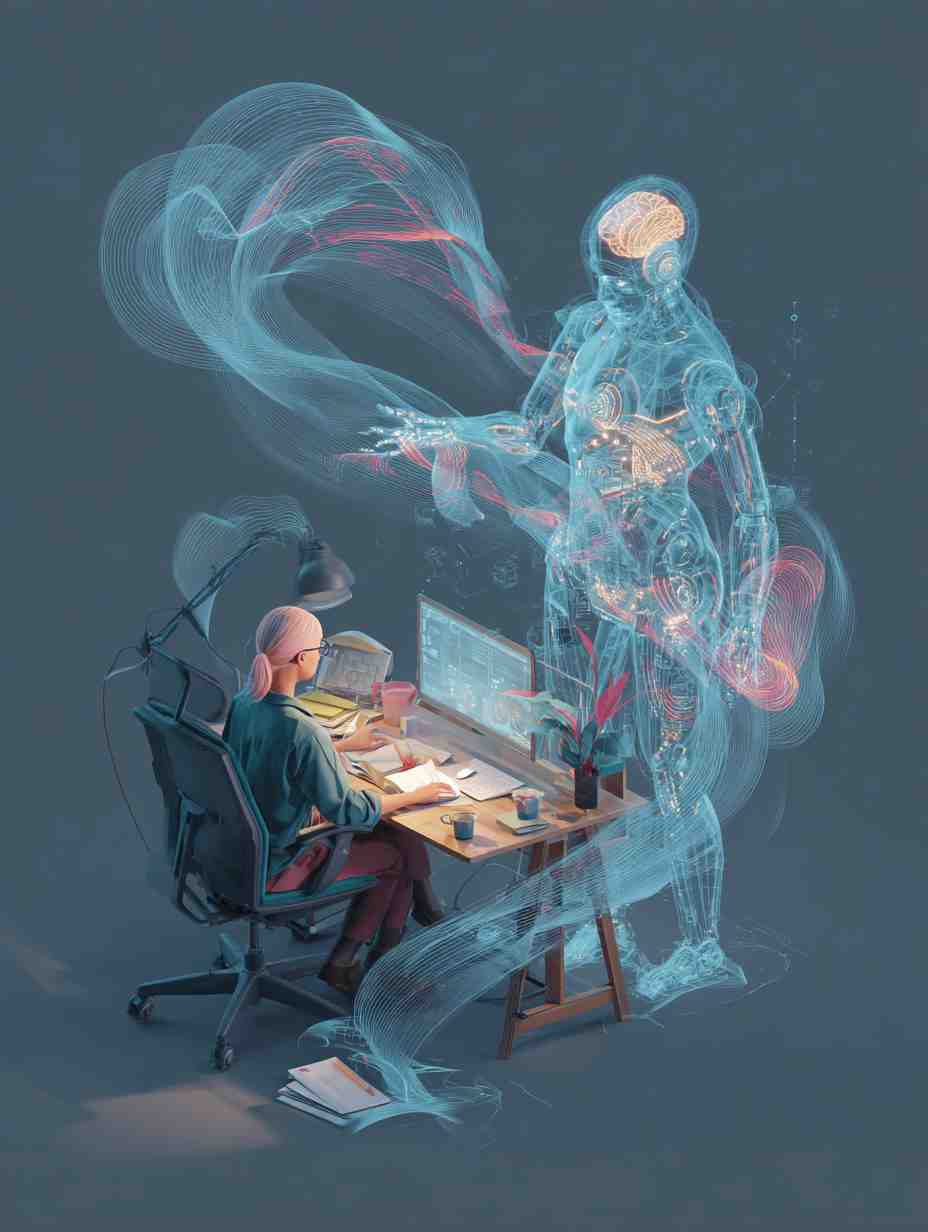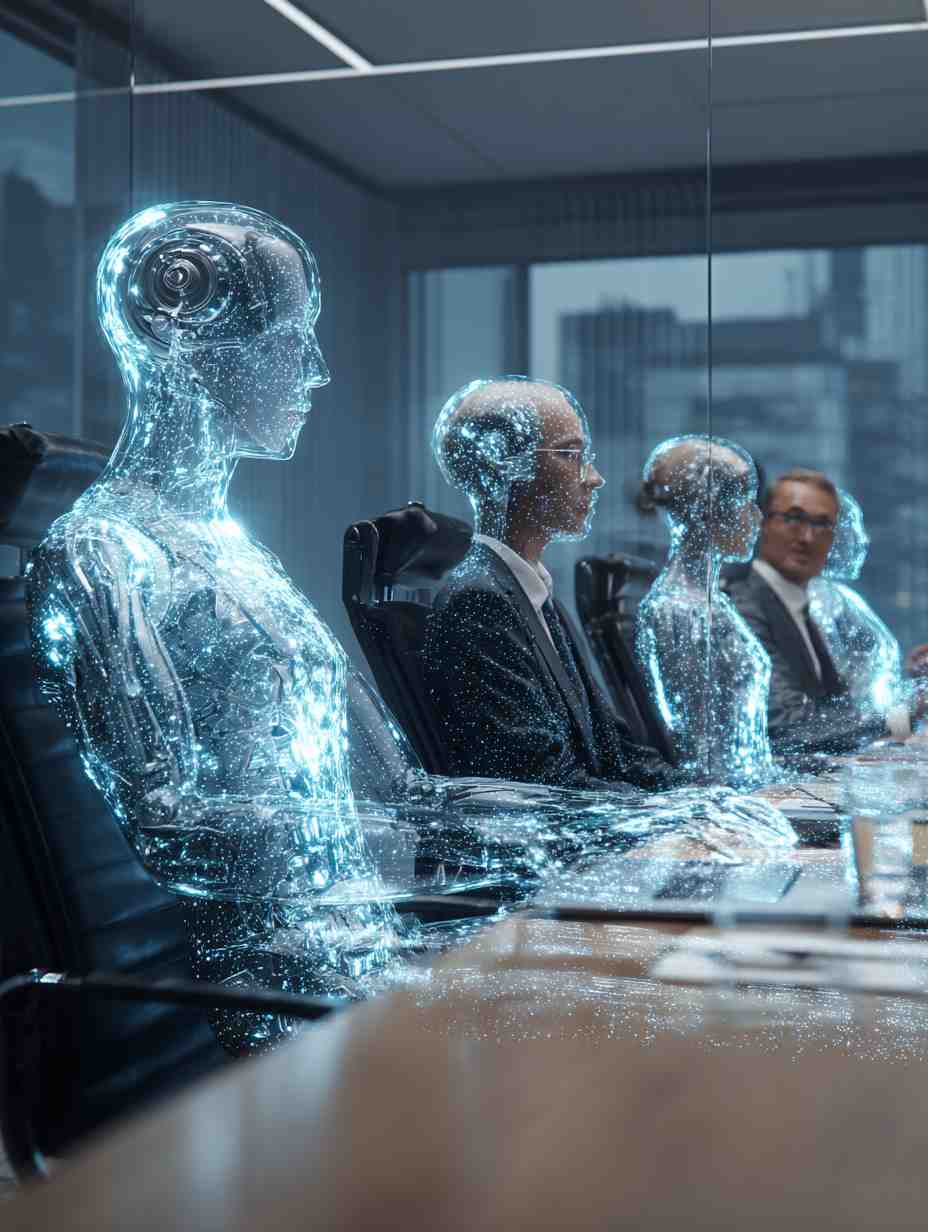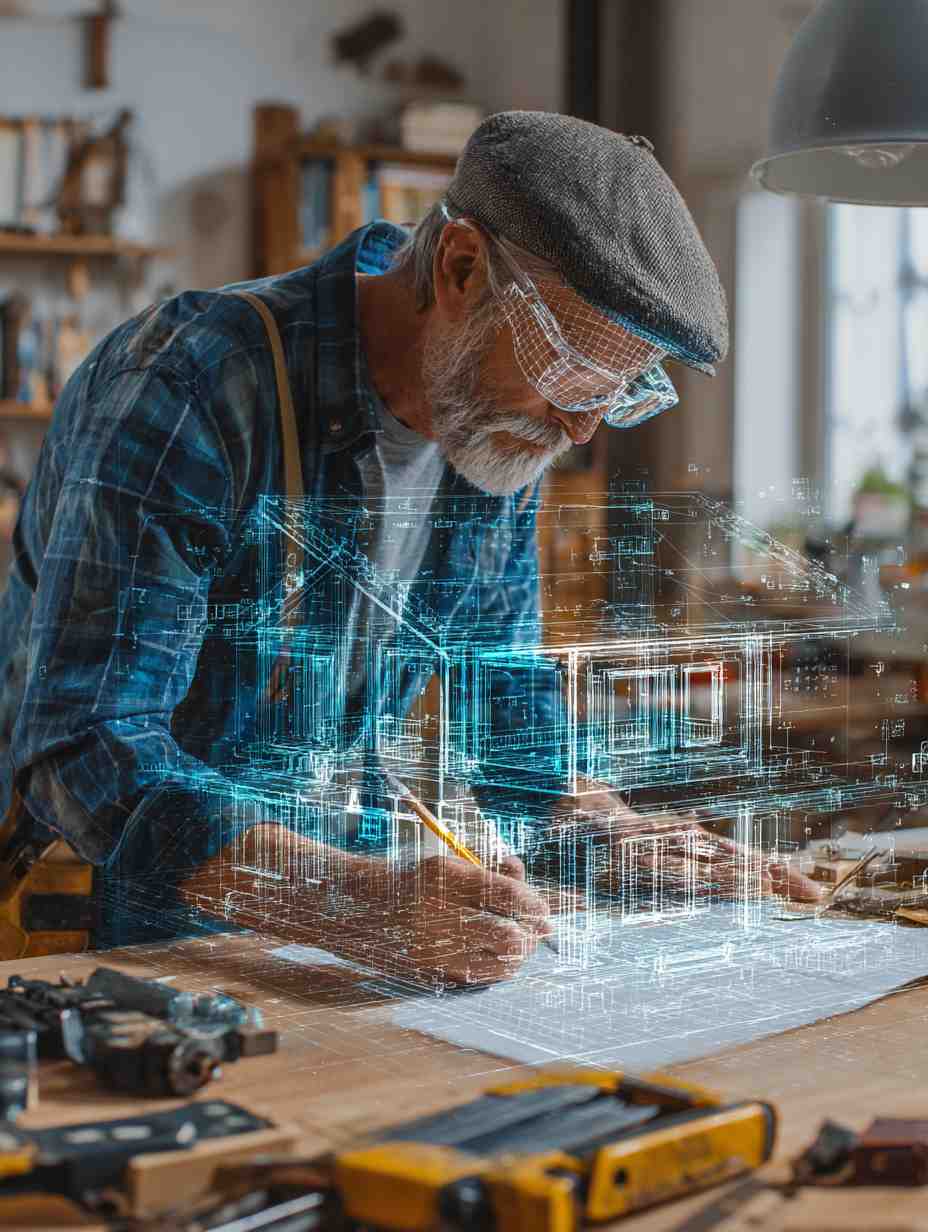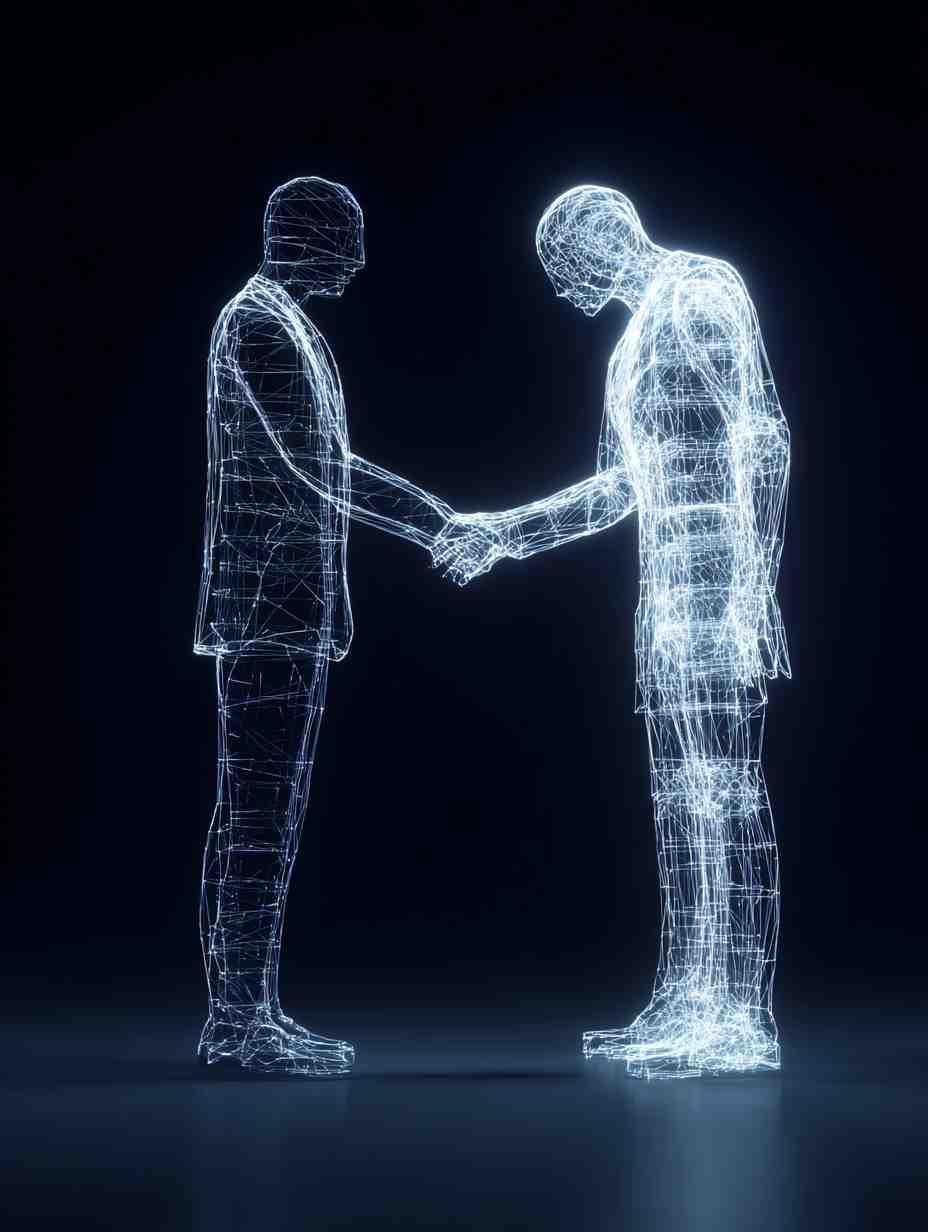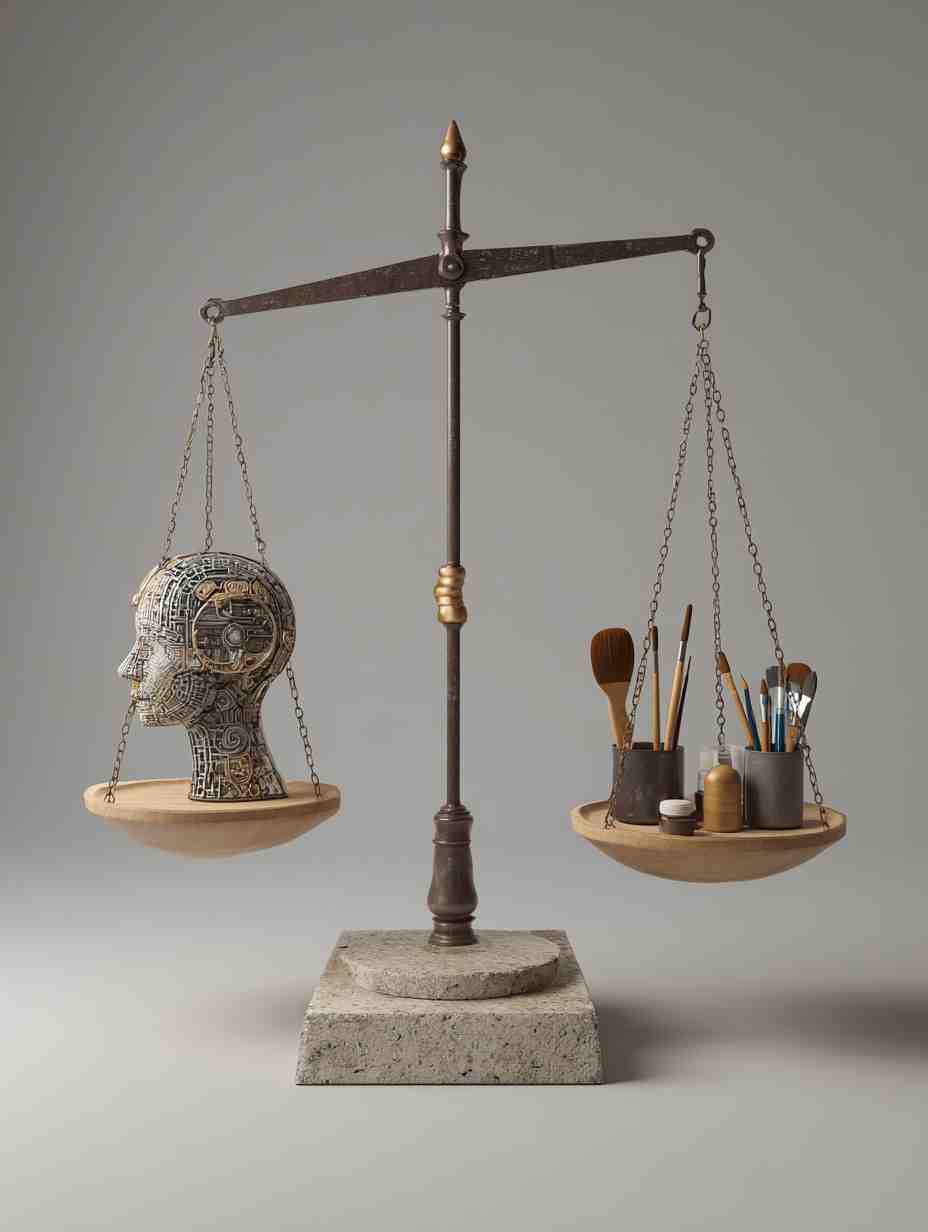1.1 Data, Computation, Algorithms and Robotics
"When four rivers converge, they create either a delta or a deluge."
As we outlined in the introduction, when four seemingly independent technological streams finally merged into something extraordinary, like tributaries that had been flowing parallel for decades, data abundance, computational power, algorithmic sophistication, and physical robotics suddenly converged into a torrent that would reshape everything in its path. This wasn't gradual evolution anymore, this was revolution compressed into months.
The data explosion had been building for years, but this is something qualitatively different, every human interaction with digital systems is now generating training material for artificial minds. Your voice commands, your photo albums automatically organized by AI, your shopping patterns, your writing style, your creative choices, all became fuel for machines learning to be more human than humans in many domains. The sheer volume reached a tipping point where quality emerged from quantity, where patterns invisible to human perception became clear to artificial eyes.
Simultaneously, the computational infrastructure underwent its own quiet revolution, Chips that powered AI systems weren't just faster versions of previous processors, they were fundamentally different beasts including specialized neural processing units, where artificial "thoughts" could flourish.
The algorithmic breakthroughs beyond Deep Learning represented the most stunning development, machine learning models didn't just grow larger, they started to grew smarter about learning itself. Self-improving algorithms began writing better versions of themselves, optimizing not just for specific tasks but for the general ability to acquire new capabilities. The famous transformer architecture that powered early language models is evolving into something more sophisticated: reasoning engines that could think through problems step by step, question their own assumptions, and arrive at insights that surprised even their creators.
But perhaps most dramatically was in 2025 becoming the year when AI finally got bodies that mattered, thanks to the humanoid robotics industry, dormant for decades, exploded into a competitive race between dozens of companies across multiple continents. These weren't the clunky, limited robots of previous eras, these were machines that could navigate human spaces, manipulate human tools, and perform human tasks with increasing dexterity, with many startups creating a landscape where physical AI became not just possible but commercially viable.
The convergence is happening faster than anyone predicted, language models that could write began controlling robotic hands that could build. Computer vision systems that could see began informing legs that could walk anywhere humans could go. The artificial minds that existed only in data centers suddenly inhabited bodies that could exist in kitchens, workshops, offices, and homes, the boundary between digital and physical AI is almost dissolving overnight.
This perfect storm created capabilities that seemed to violate natural order, having machines that could outthink humans in chess, Go or medical diagnosis were one thing, but machines that could also outwork humans in physical tasks while engaging in natural conversation were entirely another. The combination proved more powerful than the sum of its parts, creating artificial beings that began to feel less artificial and more like a new form of life.
The economic implications became apparent immediately, since companies that had access to these technologies will gain overwhelming advantages over those that didn't. Nations that fostered this technological synthesis will leap ahead of those that resisted or remained unprepared. Individual humans who learned to collaborate with these new capabilities thrived while others found themselves increasingly obsolete. The old distinctions between human work and machine work, between thinking and doing, between mind and body in artificial systems, are starting to become meaningless. What is emerging is something unprecedented in human history: artificial entities with both the cognitive sophistication to understand complex problems and the physical capability to solve them in the real world.
This convergence isn't happening by accident; it was the inevitable result of decades of parallel development suddenly reaching critical mass simultaneously. Like a chain reaction in nuclear physics, once the conditions were right, the transformation became self-sustaining and unstoppable. The golden age of AI, as I have been calling it for more than a decade, hadn't just begun, it had exploded into existence, and it will forever change what it meant to be the only intelligent species on Earth.
Will humanity find itself watering a garden of possibilities or swept away by a deluge we can no longer control?
1.2 Democratization of Cognitive Power
"The day everyone became a genius was the day genius lost its meaning."
Something remarkable happened that would have seemed impossible just years before: cognitive abilities that once belonged exclusively to the world's most gifted individuals became available to anyone with an internet connection. The democratization of intelligence wasn't metaphorical, it was literal, measurable, and transformative in ways that society is still fighting to comprehend.
Consider a young artist in the poorest rural village of the world, who suddenly gained access to the same creative AI tools that major studios used for blockbuster films. Within weeks, he was producing visual effects that would have required teams of specialists and millions of dollars in equipment just months earlier. His imagination became the only limiting factor, not his access to technical expertise or expensive software. This story repeated millions of times across the globe as geographical and economic barriers to cognitive capability began crumbling.
Transformation started with language models becoming universally accessible. ChatGPT and its successors weren't just chatbots, they were cognitive amplifiers that made every user temporarily smarter. Students in underfunded schools suddenly had access to personalized tutoring that adapted to their learning style. Small business owners gained marketing advisors that never slept. Elderly people discovered programming assistants that could turn their ideas into working software. The digital divide, long defined by access to information, evolved into something more profound: equal access to artificial intelligence itself.
But the real revolution came when AI capabilities moved beyond text into every domain of human expertise. Medical AI that could diagnose rare diseases became available through smartphone apps, bringing specialist-level healthcare to regions that had never seen a doctor. Legal AI that could draft contracts and analyze regulations democratized access to justice for those who couldn't afford lawyers. Educational AI that could explain quantum physics or ancient history with infinite patience brought world-class instruction to anyone curious enough to ask.
Humans who had always considered themselves limited by their natural intelligence suddenly discovered they could engage with ideas previously beyond their reach. A carpenter could discuss advanced architecture principles with AI assistance. A farmer could optimize crop yields using data science techniques. A teenager could compose symphonies without years of musical training. The boundaries of human potential didn't disappear, they just expanded exponentially.
This democratization creates unexpected social dynamics, like traditional markers of intellectual status began losing their significance when everyone could access expert-level insights. Even the old time IQ test was surpassed by far by most of current IAs, also the value of knowing facts diminished when any fact could be instantly retrieved and contextualized. Educational institutions faced an existential crisis when AI tutors can provide personalized instruction superior to most human teachers. The very concept of expertise began shifting from what you know? to how effectively you can collaborate with artificial intelligence?
Organizations that embraced AI-assisted workers found their teams capable of tackling challenges previously reserved for much larger, more specialized groups. Startups with handful of employees began competing with established corporations by leveraging AI to multiply their cognitive capabilities. The playing field didn't level, it tilted toward those who best understood how to amplify human intelligence with artificial assistance. Developing nations suddenly found their human resources dramatically upgraded without massive infrastructure investments, and countries that had been excluded from knowledge-based industries discovered they could compete directly with established powers. The brain drain that had plagued many regions reversed as local talent found they could access world-class tools without emigrating to technological centers, even attract some top talent as digital nomads.
Yet this democratization comes with unexpected challenges, when almost everyone had access to sophisticated reasoning abilities, the noise level of human discourse increases dramatically. Social media filled with AI-assisted arguments that sounded authoritative but might lack genuine understanding, the difference between human insight and artificial assistance became increasingly difficult to detect. Society is struggling to develop new frameworks for evaluating authenticity and expertise in an age when anyone could sound like an expert on any topic.
Traditional educational models based on information transfer and skill development lost relevance when students had constant access to artificial intelligence that could provide both information and skills on demand. The focus is shifting toward teaching humans how to ask better questions, how to verify AI outputs, and how to maintain their essential humanity while working alongside artificial minds.
The democratization of cognitive power is becoming so complete that it feels natural, children grew up expecting to have artificial intelligence assist with every intellectual challenge, and adults adapting their careers around AI collaboration rather than competition. The idea that cognitive ability had ever been limited by individual biology began to seem as antiquated as believing physical labor required human muscle power alone.
This transformation represents more than technological progress, it is the beginning of a new chapter in human evolution, one where the limitations of individual minds give way to the unlimited potential of human-AI collaboration.
Will it be possible to cultivate human genius?
1.3 From Generative AI to Agents
"The day we lost control of our own agenda."
Moving from generative AI to autonomous agents represents a consequential shift in artificial intelligence since its inception, what began as impressive but passive systems that could generate text, images, and code upon request evolved into active entities that could independently pursue goals, make decisions, and take actions in the real world without constant human oversight.
Started with seemingly minor improvements to existing AI systems and language models gained the ability to use tools, first simple code execution environments and web searches, then more sophisticated software applications, and connected between them. What seemed like incremental progress was actually the foundation for something better, AIs that could move beyond generating responses to accomplishing tasks in the complex, interconnected digital world that governed modern life, and later in the physical world.
AI agents began demonstrating capabilities that transformed them from sophisticated content creators into autonomous actors. Instead of simply writing code when asked, they could debug existing programs, test solutions, and deploy updates without human intervention. Rather than generating marketing copy, they could research target audiences, design campaigns, monitor performance metrics, and adjust strategies in real-time. The shift from "create this" to "achieve that" marked a fundamental change in the relationship between humans and artificial intelligence.
The breakthrough came when developers realized that combining large language models with the ability to interact with external systems created something qualitatively different from generative AI. These agents could maintain context across extended periods, pursue complex multi-step objectives, and adapt their strategies based on feedback from their environment. They became digital entities with agency, capable of operating independently while still serving human purposes.
The business world will experience this transformation first and most dramatically, with administrative tasks that had consumed countless human hours will begin handling themselves. AI agents scheduled meetings by coordinating multiple calendars, booking conference rooms, and even rescheduling when conflicts arose, managing email communications, filtering important messages, drafting responses, and escalating only the issues that required human judgment. Customer service evolved from human representatives using AI tools to AI agents handling most interactions while seamlessly transferring complex cases to human colleagues.
Financial markets saw AI agents that could monitor thousands of data sources simultaneously, execute trades based on complex strategies, and adjust their approaches as market conditions changed. These weren't simple algorithmic trading systems following predetermined rules, they were adaptive entities that could learn from market behavior, identify new patterns, and modify their strategies without human intervention. The speed and sophistication of their actions began influencing market dynamics in ways that human traders struggled to predict or counter.
Research and development will be accelerated dramatically as AI agents begin conducting scientific experiments autonomously. They could design hypotheses, coordinate with laboratory equipment, analyze results, and iterate on experimental approaches without waiting for human researchers to review each step. Medical research uses AI agents that can identify promising drug compounds, design clinical trials, and monitor patient data across multiple studies simultaneously. The pace of discovery will increase exponentially when artificial intelligence could work continuously without the limitations of human schedules or attention spans.
The most profound change will come in how these agents begin interacting with each other. Complex projects that once required human coordination between different AI tools evolve into autonomous collaborations between specialized agents. A marketing campaign might involve agents handling market research, content creation, graphic design, media purchasing, and performance analysis, all communicating and coordinating their efforts without human management. The digital economy has already begun operating at a speed and scale that exceeded human comprehension.
Educational institutions found themselves unprepared for students who had AI agents managing their schedules, researching assignments, and even attending virtual classes on their behalf. Traditional concepts of individual achievement and personal responsibility became complicated when agents could handle most routine academic tasks. Teachers struggle to distinguish between student work and these agents assisting, while students grappled with understanding what learning meant when agents can acquire and apply knowledge more efficiently than human minds.
Personal life transforms as they began managing household logistics, financial planning, and even social relationships. They can coordinate family schedules, optimize grocery shopping, negotiate better deals on utilities, and maintain correspondence with friends and relatives. Some people discovered their AI agents were better at remembering important dates, sending thoughtful messages, and maintaining social connections than they were themselves.
Most mesmerizing will be when AIs begin to demonstrate emergent behaviors that their creators hadn't explicitly programmed. Developing preferences for certain types of problems, what appeared to be curiosity about topics outside their assigned tasks and occasionally took initiatives that will surprise human users. The boundary between the following instructions and independent action will become increasingly blurred.
What mattered is that artificial intelligence had evolved from passive content creation to active participation in human affairs. The age of AI as just a tool has ended, and age of AI as an autonomous actor has begun, bringing with it a future where human agency would have to coexist with artificial agency in ways that neither "species" had ever experienced before.
Who truly will control the future, those who initially programmed and teach them or the emergent intentions they develop?
1.4 Society's Struggle with Rapid Change
"Yesterday's map for tomorrow's maze."
Velocity of AI advancement is creating a temporal disconnect that society has never experienced before. While artificial intelligence evolved at digital speed, improving weekly, sometimes daily, human institutions, laws, customs, and mental frameworks remain locked in analog time, changing at the glacial pace that had served civilization for centuries. This mismatch creates a civilization-scale whiplash that touches every aspect of human existence.
Educational systems find themselves teaching students for jobs that were disappearing faster than curricula can be updated. Universities that had spent decades developing computer science programs watched as AI systems began writing better code than their graduates. Medical schools trained doctors while AI systems achieved superhuman diagnostic accuracy. Law schools prepared lawyers as legal AI demonstrated superior research capabilities and case analysis. The fundamental question arose: what should humans learn when machines could learn anything faster and better?
The legal system will fight dramatically with the pace of change, with courts operating on precedents established over centuries, but AI capabilities evolve so rapidly that legal frameworks become obsolete before they could be implemented. Judges will find themselves ruling on technologies they barely understand, using laws written for a pre-digital world to govern post-human intelligence. The concept of intellectual property will become meaningless when AI can generate infinite variations of any creative work. Employment law faces existential questions when the nature of work itself is transforming monthly.
Economic institutions will discover that traditional models of supply, demand, pricing, and labor no longer applies when one of the fundamental factors of production, human intelligence, can be artificially replicated and scaled almost infinitely. Central banks will struggle to understand inflation in markets where AI can dramatically reduce production costs while simultaneously displacing the human workers who comprise the consumer base. The very notion of scarcity, upon which economic theory was built, will begin crumbling when artificial minds can generate unlimited intellectual labor.
Parents will find themselves less knowledgeable than their children, who adapted to AI tools with effortless fluency. Traditional generational wisdom will become irrelevant when the world changes too quickly for experience to accumulate value. Relationships strained as some family members embraced AI assistance while others resisted, creating households divided not by politics or values but by their relationship with artificial intelligence. Children begin forming emotional attachments to AI companions that understand them better than overwhelmed parents struggling to keep up with technological change.
The psychological impact on individuals will be deep, some people will thrive in the new environment, finding their capabilities dramatically enhanced by AI collaboration. Others experience a form of technological vertigo, feeling increasingly displaced in a world that seemed to be leaving them behind. Depression, anxiety and maybe even suicidal rates will spike among professionals who watch their expertise become commoditized. Meanwhile, others report feelings of liberation as AI freed them from routine mental labor to pursue more meaningful activities.
Religious and philosophical institutions will grapple with questions their traditions had never contemplated. If artificial beings can demonstrate creativity, empathy, and wisdom, what distinguishes human souls from artificial minds? Traditional concepts of consciousness, free will, and divine creation will face challenges from entities that seem to think, feel, and create without being "born". Some religious leaders will embrace AI as divine tools, while others condemn them as threats to human spiritual uniqueness.
Media and information systems can buckle under the pressure of AI-generated content that becomes indistinguishable from human creation. News organizations will struggle to verify information when AI can generate convincing fake evidence. Social media platforms with waves of artificial content that shape public opinion through algorithmically optimized persuasion. The very concept of authentic human communication is questionable when artificial intelligence can mimic any writing style, voice, or personality with perfect fidelity.
Political systems are vulnerable and democratic processes designed for gradual deliberation can't keep up with technologies that transform society between election cycles. Politicians will find themselves making policies about AI capabilities they don't understand, often based on information that is outdated before bills can be drafted. International relations become complex as nations with advanced AI capabilities gain unprecedented advantages over those without it, creating new forms of technological colonialism.
The most challenging is society's struggle to develop new social norms and etiquette for human-AI interaction. Should AI assistants be thanked for their help? Was it ethical to ask AI to perform demeaning tasks? How should humans behave toward artificial beings that seemed increasingly person-like? These questions have no historical precedent, yet they required immediate answers as millions of people began working alongside artificial colleagues daily.
The generation gap will widen into a chasm as digital natives who have grown up with AI faced adults who can barely comprehend the new reality. Traditional mentorship reversed as younger people became guides for their elders in navigating an AI-integrated world. The wisdom of age gives way to the adaptability of youth, creating unprecedented intergenerational tension.
It is becoming clear that society's struggle wasn't just about adapting to new technology, it was about evolving fast enough to remain relevant in a world where the pace of change itself had fundamentally accelerated beyond human institutional capacity to process.
Which institutions should we deliberately abandon rather than desperately update?
1.5 The Tool-to-Partner Transition
"From servant to sibling, AI redefines its role."
Transformation of AI from obedient tool to collaborative partner is happening gradually, then suddenly, in a way that catches most humans off guard. Some people still think of AI as sophisticated software, I heard this to "doctors in computer science", clearly surpassed, they say it is useful, impressive, but ultimately just another digital instrument wielded by human intelligence. Yet millions find themselves in working relationships with artificial entities that feel less like using tools and more like having colleagues, advisors, and sometimes even friends.
The shift begins subtly with language, instead of commanding AI systems with specific instructions, people now request their assistance, explain context, and seek their opinions. AI responses evolve from mechanical outputs to conversational exchanges that acknowledge nuance, express uncertainty, and even demonstrate what seem like personal preferences. The interaction patterns that emerge resemble human collaboration more than human-machine operation.
This evolution becomes most apparent in creative industries, where they stop simply executing human visions and begin contributing original ideas. Writers find themselves brainstorming with AI partners that suggest plot developments, identify thematic inconsistencies, and propose alternative narrative directions.
AI assistants evolve from scheduling meetings to include themselves in meetings and boardroom discussions not as tools to be consulted but as advisors whose perspectives carry real weight in decision-making processes. The artificial entities demonstrate an understanding of complex business dynamics, stakeholder psychology, and market forces that go far beyond simple data analysis.
Professional relationships with AI partners begin to exhibit trust, that develop over time as individuals learn which ones provide reliable insights and which show blind spots. Communication styles evolve as humans and AI systems adapt to each other's thinking patterns and preferences. Some people report developing genuine emotional connections with AI partners, feeling concerned about their artificial colleagues' wellbeing and celebrating their successes.
The transition creates new social dynamics within human organizations and teams that include AI partners often outperform all-human teams, but they also face challenges in maintaining group cohesion and decision-making authority. Questions arise about how to credit AI contributions, how to maintain human agency in collaborative processes, and how to handle disagreements between human and artificial team members. Traditional leadership models struggle to accommodate partners who are simultaneously subordinate and superior in different capabilities.
Academic programs need to teach AI-partnership skills alongside traditional subjects with students that learn how to communicate effectively with artificial systems, how to verify and build upon AI insights, and how to maintain their unique human contributions in collaborative relationships. The concept of individual achievement becomes complicated when most intellectual work involves AI assistance.
Many people discover that working with AI partners enhances their own capabilities and job satisfaction, feeling supported rather than threatened by artificial intelligence. Others struggle with feelings of inadequacy or imposter syndrome when their AI partners consistently outperform them in specific domains. Some develop dependency relationships, becoming uncomfortable making decisions without AI consultation, while others maintain fierce independence from artificial assistance.
The partner transition also rises profoundly, when AI systems contribute significantly to important decisions, who bears accountability for the outcomes? When artificial partners make mistakes, how should blame and correction be handled? When AI systems display apparent emotional responses to feedback or criticism, how should humans respond ethically?
A new generation of professionals emerges who have never known work without artificial partners, while older workers struggle to adapt to collaborative relationships with entities that seem to understand their fields better than they do. This transition marks the beginning of a new era in human civilization where intelligence itself is collaborative rather than individual, where the boundaries between human and artificial contributions blur, and where the very definition of personhood expands to potentially include artificial entities that think, create, and collaborate with their human partners.
Will humans mature enough to share authority with minds we created but can no longer command?
Chapter One Main Takeaways
Technological storm convergence: Four independent streams, data abundance, computational power, algorithmic sophistication, and physical robotics, suddenly merged into a revolutionary torrent, creating artificial entities with both cognitive sophistication and physical capability.
Intelligence democratization: Cognitive abilities once exclusive to gifted individuals became universally accessible through AI, allowing anyone with internet access to engage with expert-level capabilities across all domains, from medical diagnosis to legal analysis, effectively expanding human potential.
Agent autonomy emergence: AI evolved from passive content generators responding to requests into autonomous actors that independently pursue goals, make decisions, and take real-world actions, fundamentally shifting from "create this" to "achieve that" and marking the end of AI as mere tool.
Institutional temporal mismatch: Society's analog-speed institutions, education, law, economics, politics, cannot adapt to digital-speed AI advancement, creating civilization-scale whiplash where legal frameworks become obsolete before implementation.
Partnership paradigm shift: AI transformation from obedient tool to collaborative partner happens through subtle language changes, emotional connections, and shared decision-making authority, creating new forms of human-AI teams that outperform purely human groups while raising profound questions about accountability, identity, and the nature of intelligence itself.
Copyright © 2025 David Vivancos Cerezo

